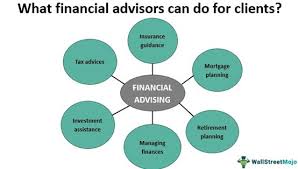Introduction: In a rapidly expanding financial advisory landscape, finding the right advisor can be overwhelming. With minimal regulations and a plethora of certifications, it’s crucial to discern qualified professionals who align with your financial goals. In this guide, we’ll explore the challenges of the industry and provide insights on how to choose the ideal financial advisor for your needs.

1. The Proliferation of Advisors: The 1990s witnessed a significant surge in the number of financial advisors, growing from 25,000 to over 650,000 by 2006 in the United States alone. Today, the industry boasts even more professionals. However, the lack of stringent regulations has led to a diverse pool of advisors, varying widely in competence and expertise.
2. Understanding Certification Programs: While certifications like Certified Financial Planner (CFP) indicate a level of competency, not all certifications are created equal. Some programs require minimal training and lack practical experience components. As a savvy investor, it’s essential to look beyond certifications and assess an advisor’s investment philosophy and alignment with your financial goals.

3. The Challenge of Regulation: Government regulations in the financial advisory realm are scant, leaving advisors mostly regulated within their organizations. This lack of oversight emphasizes the importance of due diligence when selecting an advisor. Research their track record, client testimonials, and approach to financial planning to ensure they meet your criteria.

4. Thinking Beyond the Mainstream: A key consideration when choosing a financial advisor is their ability to think creatively. Mainstream advice might not always be tailored to your unique situation. A good advisor should challenge conventional wisdom and craft a customized strategy that maximizes your financial potential. Avoid advisors who offer generic, one-size-fits-all solutions.
5. Maintaining Control Over Your Finances: While financial advisors provide valuable expertise, it’s essential to maintain control over your financial decisions. Collaborate with advisors who respect your input, involve you in the decision-making process, and educate you about your investments. A transparent relationship ensures you remain informed and empowered.
Conclusion: Finding the right financial advisor requires diligent research, thoughtful consideration, and a clear understanding of your financial objectives. By evaluating certifications, investigating their investment philosophy, and ensuring their approach aligns with your goals, you can navigate the vast sea of financial advisors and secure a trusted partner in your wealth-building journey. Remember, your financial future is in your hands; choose wisely and stay in control.



